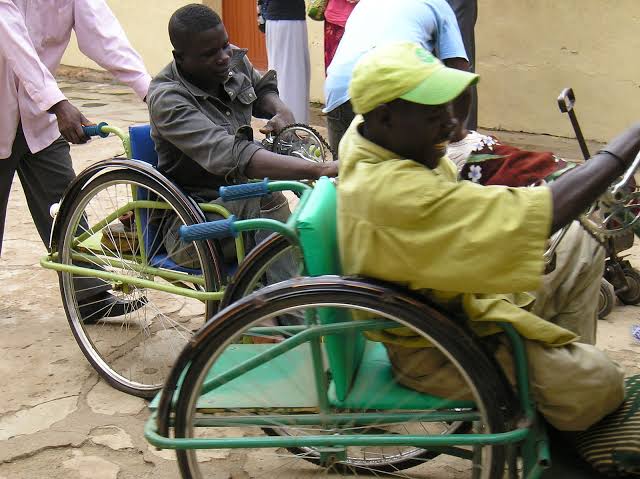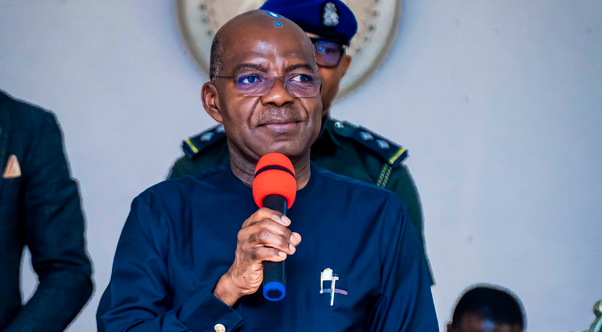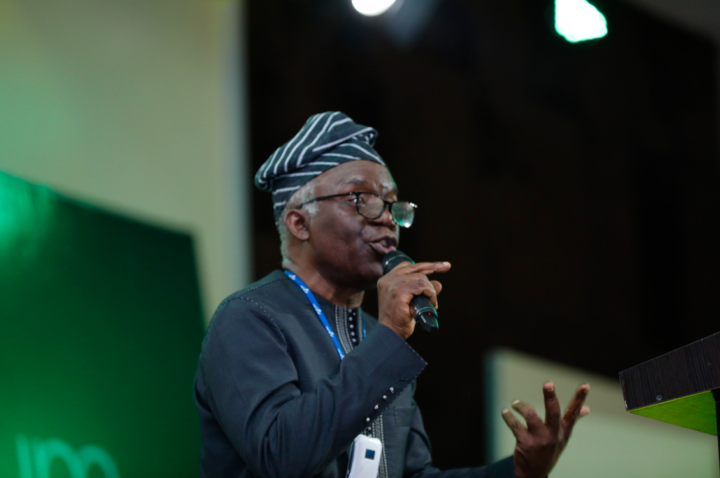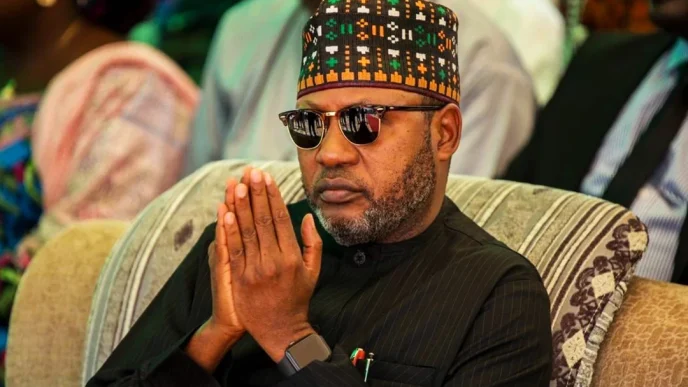PWDs | File photo
There have been increasing proposals by disability rights advocates for improvement in the lives of people with disabilities (PWDs) across Nigeria. It is a justifiable call, which, if actualised, will bring significant changes to the Nigerian disability community.
The federal government has taken a rightful step by enacting the Discrimination against Persons with Disabilities (Prohibition) Act, 2018, which became a law in 2019. State governments are expected to domesticate this law. Domesticating it means they need to have the same laws in their states.
In line with legal requirements, state governments, through their houses of assembly, have been passing disability bills into law. Recently, the Taraba State House of Assembly joined the movement.
The passage of the disability bills into law by various state legislatures marks a significant step toward addressing the systemic challenges faced by PWDs and fostering inclusive development within disability communities.
Advertisement
In this article, we look at the provisions of the disability laws and their implications for the disability communities in the states. We examine the potential consequences, opportunities, and challenges that will arise from the enactment and enforcement of these laws, which will affect the rights, inclusion, and quality of life for PWDs.
1. Legal protection and enforcement of rights
The passage of disability bills at the state level provides a localised legal framework to protect PWDs from discrimination and ensure their rights are upheld. These laws typically prohibit discrimination in areas such as employment, education, healthcare, and public access, imposing penalties like fines or imprisonment for violations. For instance, states like Lagos, Ekiti, Anambra, and Plateau have passed disability laws that align with the federal act, emphasising accessibility and equal opportunities.
Advertisement
Implications
Empowerment through legal recourse: PWDs now have a legal basis to challenge discrimination, such as denial of employment or access to public spaces. This fosters a sense of agency and reduces vulnerability to exclusion.
Localised enforcement: State laws enable disability commissions or agencies to monitor compliance and address violations specific to local contexts, making enforcement more practical than relying solely on federal mechanisms.
Increased awareness: The passage of these bills sparks public discourse on disability rights, gradually shifting societal attitudes from pity or stigma to recognition of PWDs as rights-holding citizens.
Advertisement
2. Improved access to public infrastructure and services
State disability laws often mandate accessibility in public buildings, transportation, and communication systems, with transitional periods (e.g. five years) for compliance. This addresses a major barrier for PWDs, who frequently face physical and structural exclusion.
Implications
Enhanced mobility: Accessible infrastructure, such as ramps and tactile paving, enables PWDs to navigate public spaces independently, improving their quality of life and participation in community activities.
Advertisement
Access to services: Provisions for sign language interpreters in hospitals or braille materials in schools ensure PWDs can access essential services like healthcare and education without relying on others.
Economic opportunities: Accessible workplaces and public transport allow PWDs to pursue employment, reducing dependency and poverty, which disproportionately affect disability communities.
Advertisement
3. Socio-economic inclusion and employment opportunities
Many state disability laws include provisions for equal employment opportunities and affirmative action, such as reserving a percentage of jobs for PWDs in public and private sectors. They also promote vocational training and economic empowerment programmes.
Advertisement
Implications
Reduced poverty: Employment opportunities and skill development programmes help PWDs achieve financial independence, addressing the high poverty rates among disability communities (noted in the 2018 Nigeria Demographic and Health Survey, where 7% of Nigerians over five have disabilities).
Advertisement
Integration into the workforce: Affirmative action policies challenge stereotypes about PWDs’ capabilities, encouraging employers to hire qualified individuals with disabilities.
Community development: Economic empowerment of PWDs boosts local economies, as disability communities contribute to and benefit from state development initiatives.
4. Establishment of disability commissions and advocacy platforms
State disability laws often establish commissions or agencies, like the National Commission for Persons with Disabilities (NCPWD) at the federal level, to oversee implementation, coordinate programmes, and engage with disability communities. These bodies serve as advocacy hubs and policy drivers.
Implications
Structured representation: Disability commissions provide a platform for PWDs to influence policy, ensuring their needs are prioritised in state budgets and programmes.
Community engagement: These agencies foster collaboration between the government and disability organisations, strengthening the advocacy capacity of groups like JONAPWD or the Association for Comprehensive Empowerment of Nigerians with Disabilities (ASCEND).
Data collection: Commissions often conduct disability data surveys, addressing the lack of comprehensive data (a barrier noted in the 2018 NDHS), which informs evidence-based interventions.
5. Education and healthcare
State laws emphasise inclusive education and specialised healthcare, addressing the exclusion of PWDs from these critical sectors. Provisions include free or subsidised education, teacher training for inclusive classrooms, and accessible healthcare facilities.
Implications
Increased educational attainment: Inclusive schools reduce dropout rates among children with disabilities, equipping them for future economic participation.
Improved health outcomes: Accessible healthcare and rehabilitation services address the specific needs of PWDs, reducing secondary complications and improving overall well-being.
Empowered youth: Educated and healthy PWDs are more likely to advocate for their rights, strengthening disability communities’ leadership.
6. Challenges to implementation
While the passage of disability bills is a milestone, implementation remains a challenge, with implications for their effectiveness:
Limited funding: States often lack the financial resources to fully implement accessibility mandates or fund disability programmes, slowing progress.
Low awareness: Negative cultural attitudes and a lack of public sensitisation perpetuate stigma, undermining the laws’ impact.
Enforcement gaps: Weak monitoring and enforcement mechanisms allow non-compliance to persist, particularly in rural areas where PWDs are most vulnerable.
7. Broader societal and cultural shifts
The passage of these bills signals a gradual shift in societal perceptions, moving away from viewing PWDs as charity cases toward recognising them as equal contributors to development. This cultural shift, though slow, is critical for long-term inclusion.
Implications
Reduced stigma: Public campaigns tied to these laws challenge myths linking disability to curses or sin, fostering acceptance.
Community cohesion: Inclusive policies strengthen social bonds, as PWDs participate in cultural, political, and economic activities alongside others.
Policy precedent: Successful state laws may inspire other states to adopt similar legislation, creating a ripple effect nationwide.
A STEP TOWARD INCLUSIVE DEVELOPMENT
The passage of disability bills by state houses of assembly is a transformative step for PWDs and disability communities. These laws promise legal protection, accessibility, economic empowerment, and social inclusion, addressing decades of marginalisation. However, their success hinges on robust implementation, adequate funding, and sustained advocacy to overcome cultural and logistical barriers.
For disability communities, these bills are not just laws but beacons of hope, signalling a future where PWDs can live with dignity, contribute to their states’ development, and thrive as equal citizens.










